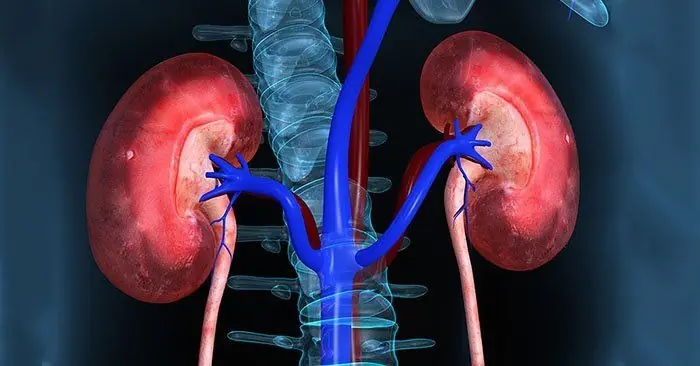
10 Natural Remedies for Bronchitis to Ease Painful Cough Attacks
10 Natural Remedies for Bronchitis to Ease Painful Cough Attacks

Bronchitis occurs when the bronchial tubes—responsible for carrying air in and out of your lungs—become inflamed. This often results in a nagging cough, chest tightness, and difficulty breathing. While acute bronchitis usually clears up within a few weeks, chronic cases may require ongoing care.
In both situations, natural home remedies can offer significant relief, reduce coughing spells, and support the healing process. Below are 10 tried-and-true natural remedies to help manage bronchitis symptoms:
1. Steam Inhalation
Why it helps:
Warm, moist air helps loosen mucus, reduce inflammation, and open the airways.
How to use it:
-
Boil water and pour it into a bowl.
-
Lean over the bowl, drape a towel over your head, and inhale deeply for 10–15 minutes.
-
Optional: Add a few drops of eucalyptus or peppermint essential oil for added relief.
2. Honey
Why it helps:
Honey soothes the throat, reduces irritation, and suppresses coughing thanks to its antibacterial and anti-inflammatory properties.
How to use it:
-
Mix 1–2 teaspoons of raw honey in warm tea or water.
-
Take a spoonful before bed to reduce nighttime coughing.
3. Turmeric Milk (Golden Milk)
Why it helps:
Turmeric’s active compound, curcumin, fights inflammation and boosts immunity, making it a powerful bronchitis remedy.
How to use it:
-
Warm a glass of milk (dairy or plant-based).
-
Stir in ½ teaspoon turmeric powder, a pinch of black pepper (for absorption), and honey for taste.
-
Drink once daily, preferably before bedtime.
4. Saltwater Gargle
Why it helps:
Gargling with salt water reduces throat inflammation and soothes irritation caused by constant coughing.
How to use it:
-
Mix ½ teaspoon salt in a glass of warm water.
-
Gargle for 30 seconds and spit it out.
-
Repeat 2–3 times a day.
5. Ginger Tea
Why it helps:
Ginger’s anti-inflammatory and antioxidant compounds help relax airways and break up mucus.
How to use it:
-
Boil fresh ginger slices in water for 10 minutes.
-
Strain and add lemon or honey to taste.
-
Drink 2–3 times a day.
6. Eucalyptus Oil
Why it helps:
Eucalyptus oil acts as a natural decongestant, thanks to cineole—a compound with antimicrobial and anti-inflammatory effects.
How to use it:
-
Add a few drops to a bowl of hot water and inhale the steam.
-
Alternatively, use a diffuser while you sleep.
7. Garlic
Why it helps:
Garlic’s active ingredient, allicin, has strong antibacterial, antiviral, and anti-inflammatory properties that help fight infections.
How to use it:
-
Crush 2–3 garlic cloves and boil in a cup of milk or water.
-
Strain and drink daily.
-
You can also add raw garlic to food or take supplements (consult your doctor first).
8. Licorice Root Tea
Why it helps:
Licorice root helps soothe irritated throat tissues and works as an expectorant to loosen mucus.
How to use it:
-
Simmer 1 tablespoon of dried licorice root in 2 cups of water for 10 minutes.
-
Strain and drink 1–2 times daily.
Note: Not recommended for people with high blood pressure unless advised by a doctor.
9. Rest & Humidify Your Environment
Why it helps:
Adequate rest supports healing, while humidified air keeps your respiratory system moist and comfortable.
How to use it:
-
Get enough sleep and avoid overexertion.
-
Use a humidifier to maintain indoor humidity (ideal range: 40–50%).
-
No humidifier? Place a bowl of water near a heat source to add moisture to the air.
10. Stay Hydrated
Why it helps:
Fluids help thin mucus, making it easier to expel, and keep your airways moist and less irritated.
How to use it:
-
Drink 8–10 glasses of water daily.
-
Include warm fluids like broths, herbal teas, or warm water with lemon and honey.
-
Avoid alcohol and caffeine as they can dehydrate your body.
✅ When to See a Doctor
While these natural remedies can relieve symptoms and speed up recovery, seek medical advice if:
-
Symptoms persist beyond 3 weeks
-
You experience high fever, chest pain, or shortness of breath
-
The cough produces green, yellow, or bloody mucus
Take care of your lungs—your breath is your life.
Have you tried any of these remedies? Share your favorite one or let me know if you'd like a printable version!
News in the same category


6 Warning Signs You Shouldn’t Ignore – Early Indicators of Cancer

Doctors Reveal the Reasons Why More and More Young People Are Getting Cancer

Nature’s Top Lymphatic Cleansers: Detox & Strengthen Immunity Naturally

10 Warning Signs Your Body Might Be Giving You About Clogged Arteries

Cleanse Your Liver Naturally with This Powerful Juice: Beetroot, Apple, Carrot, Orange & Ginger

The Surprising Benefits of Combining Eggs and Coffee: A Nutritious and Energizing Pair

Ginger Lemon Juice: A Potent Elixir for Health and Wellness

Leg Pain, Rheumatism, Varicose Veins, Arthritis – Natural Remedy with Cloves & Garlic! 🧄🌿

6 Dementia Symptoms You Might Overlook at First

10 Snoring Solutions Your Partner Will Be Thankful For

6 Subtle Facial Clues That Can Reveal Serious Health Conditions

Preventing Stroke and Cerebral Infarction: Remember These 3 Health Indicators, 1 Critical Condition, and 6 Things You Should Never Ignore

4 Changes in Your Fingers That Could Be Signs of Lung Can.cer – See a Doctor Immediately!

Cancer Doesn’t Hurt at First, But If You Notice These 8 Signs During Bathroom Visits, See a Doctor Immediately: Don’t Ignore Them

The world’s oldest woman, who lived to 117, ate the same meal every day throughout her life

Gynecologist Refuses to Treat Trans Woman, Sparking Backlash Over Refused Care

A 4-Year-Old Girl Nearly Lost Her Life to Diabetes — Parents in Tears: “I Spoiled Her Too Much!”

8 Signs of Kidney Failure That, If Ignored, Could Lead to a Lifetime of Dialysis
News Post

'Love What He Stands For': People Have Chosen Their Favorite Candidate for the Next Pope

Pope Leo's Brother Recalls an 'Interesting' Moment from Their Childhood That Predicted His Papacy – Details

I CAME HOME FROM DEPLOYMENT TO SURPRISE MY WIFE—BUT SHE HAD A BIGGER SURPRISE WAITING FOR ME

A STRANGER TOOK MY BABY IN HER ARMS—AND I ALMOST CRIED FROM RELIEF

The Hidden Culprits Behind Osteoporosis: 3 Common Drinks You Should Watch Out For

Urgent health warning ahead of virus explosion about to strike Australia

6 Warning Signs You Shouldn’t Ignore – Early Indicators of Cancer

MY K9 PARTNER SAVED MY LIFE LAST YEAR—BUT THIS MORNING HE REFUSED TO GET IN THE CAR

Doctors Reveal the Reasons Why More and More Young People Are Getting Cancer

I PLAYED A RANDOM SONG ON A STORE PIANO—AND SOMEONE IN THE BACK STARTED CRYING

The family took in an old aunt from the village; they didn’t even consider what it would lead to

The Cause of Alzheimer’s Could Be Coming From Inside Your Mouth, Study Claims

Heartbroken Parents Of 10-Year-Old Who Died By Suicide Share Warning Signs They Noticed

What 16 Miss Universe Winners Look Like Without Makeup — The Difference Stuns

At 79, This Iconic Actress Is Still Turning Heads — After Life as a Single Mom & Embracing Aging

Nature’s Top Lymphatic Cleansers: Detox & Strengthen Immunity Naturally

10 Warning Signs Your Body Might Be Giving You About Clogged Arteries

My Neighbor Sent Her Kid to Mow My Lawn Without Asking & Then Demanded I Pay $50 – I Gave Her a Reality Check
